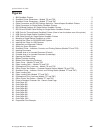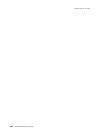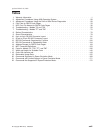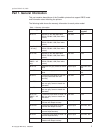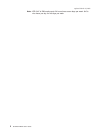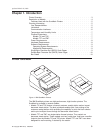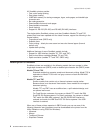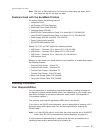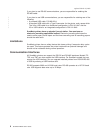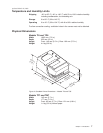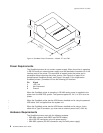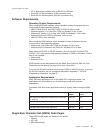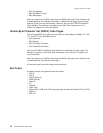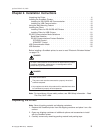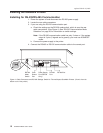
Note: IOR 24x7 is IBM onsite repair 24 hours times seven days per week. 9x5 is
nine hours per day for five days per week.
Features Used with the SureMark Printers
All models support the following features:
v Integration Panel
v 40-Character VFD Post Extension
v Distributed Printer Cable (RS-485)
v Integrated Cable (RS-485)
v Short RS-232 Communications Cable, 2 m (about 6.6 ft), P/N 86H2192
v Long RS-232 Communications Cable, 4 m (about 13.1 ft), P/N 86H2195
v Power Supply (RS-232 and USB), P/N 42H1176
v Power Cords (country-specific)
v RS-232/RS-485 Interface Card
Models TI5, TG5, and TM7 support the following features:
v USB Cable — Powered, 0.5 m (about 1.6 ft), P/N 01L1646
v USB Cable — Powered, 3.8 m (about 12.5 ft), P/N 01L647
v USB Cable — Standard, 5.0 m (about 16.4 ft), P/N 08L2014
v USB Interface Card
Because a cash drawer can attach directly to the SureMark, all models also support
the following features:
v Compact Cash Drawer - Vertical Till
v Compact Cash Drawer - Horizontal Till
v Full-size Cash Drawer - Adjustable Till
v Full-size Cash Drawer - Fixed Till Insert
v Short Cash Drawer Cable, P/N 72H3802
v Long Cash Drawer Cable, P/N 72H3803
Planning Information
Your Responsibilities
You are responsible for replenishing consumable supplies, including roll paper for
the thermal (customer receipt station) printer, and, depending on your model, forms
and ribbon cartridges for the impact (document insert) station. (See Appendix A,
“Consumable Supplies”.)
The customer must load the appropriate DBCS fonts in the printer.
If you plan to use RS-232 communications, you are responsible for ordering a 24 V
dc power supply with a power cord. You are also responsible for ordering the
RS-232 cable.
Note: If a 3-wire RS-232 cable is to be used, the printer must be set to XON/XOFF
mode. (See “RS-232 Communications Protocol Selection” on page 23.)
It is the customers responsibilities to update printer firmware as needed prior to
installing printers and as desired during the printer’s life.
updated March 18, 2002
Chapter 1. Introduction 5
|
|
|
|
|



